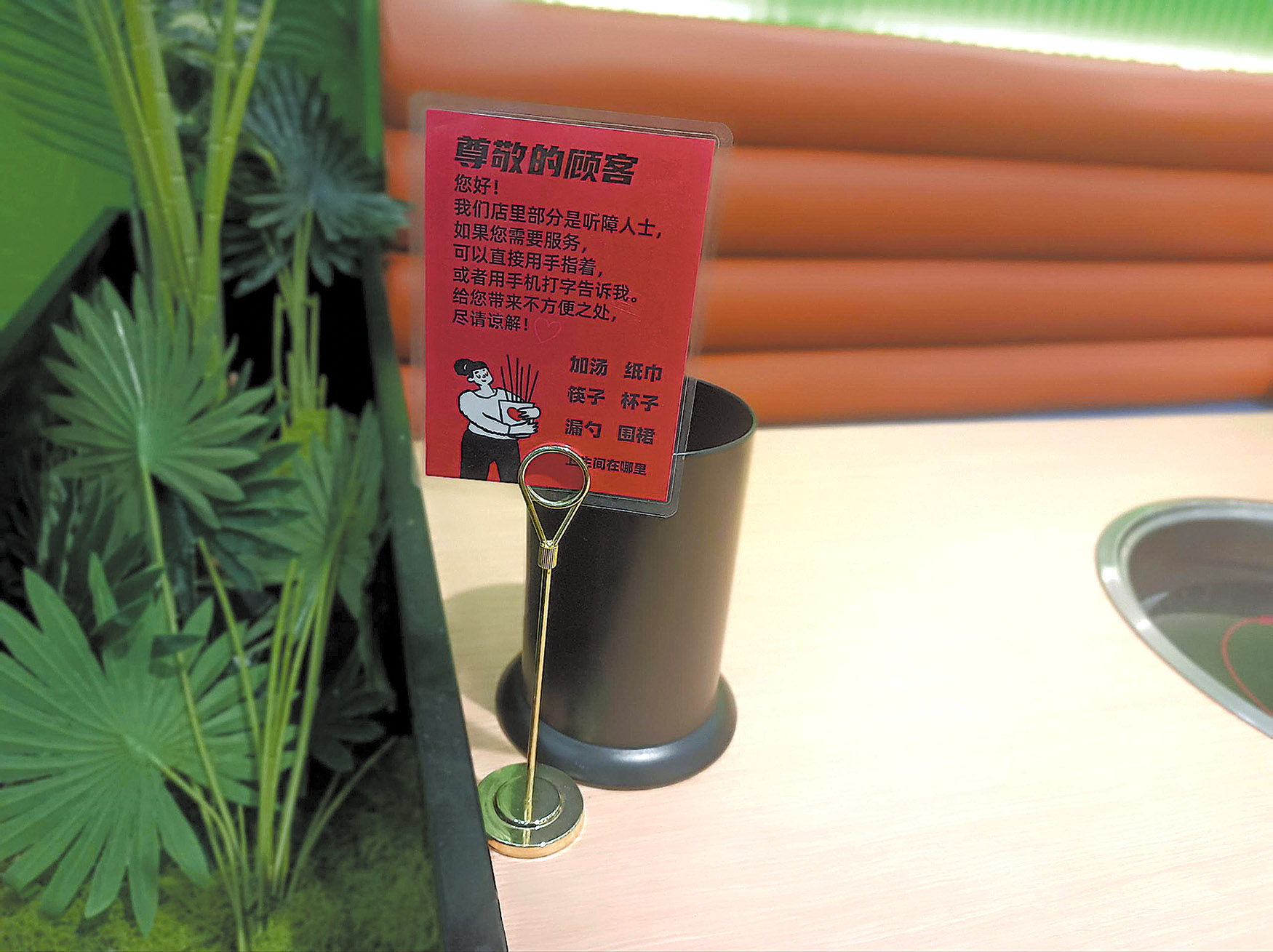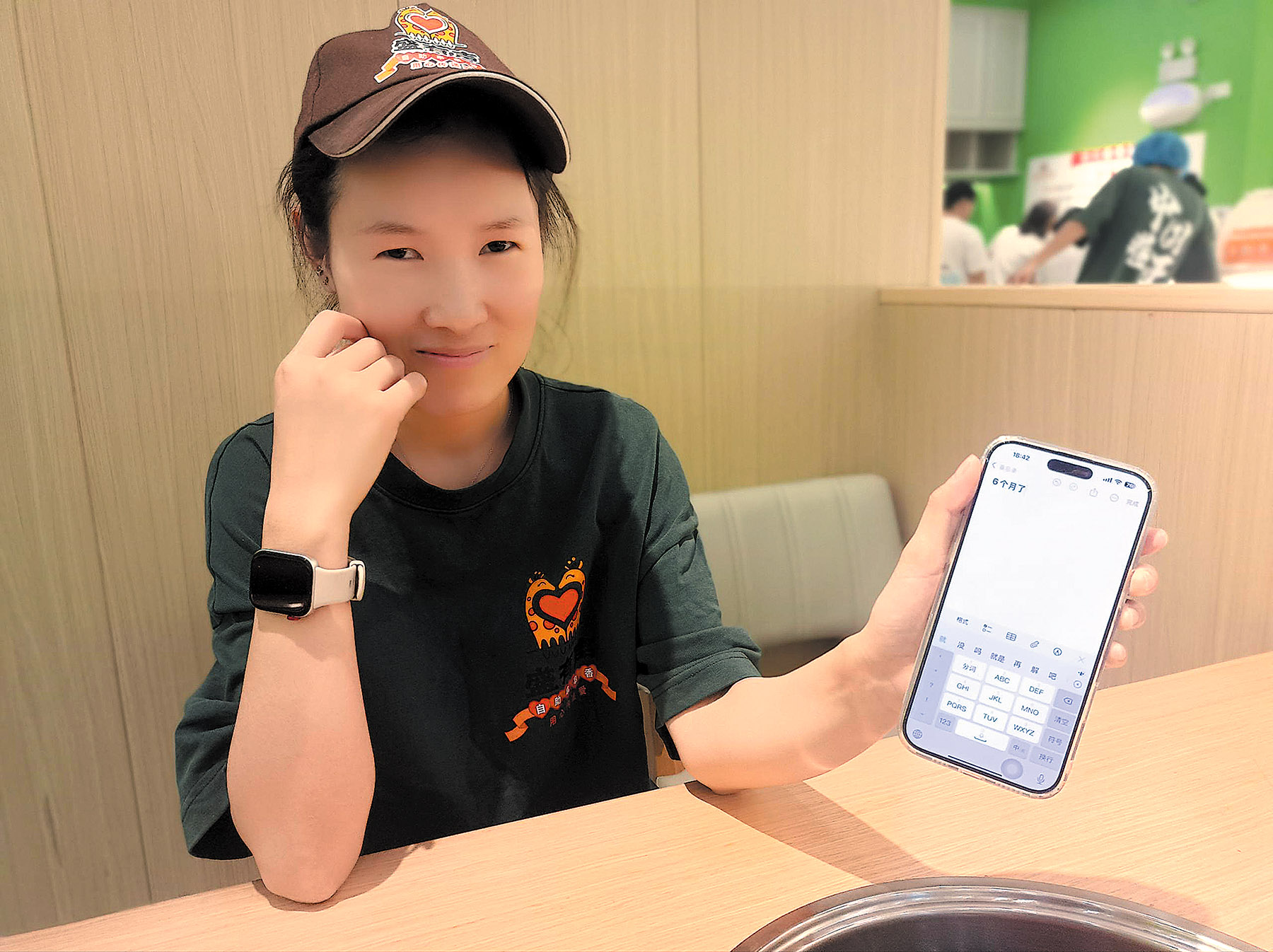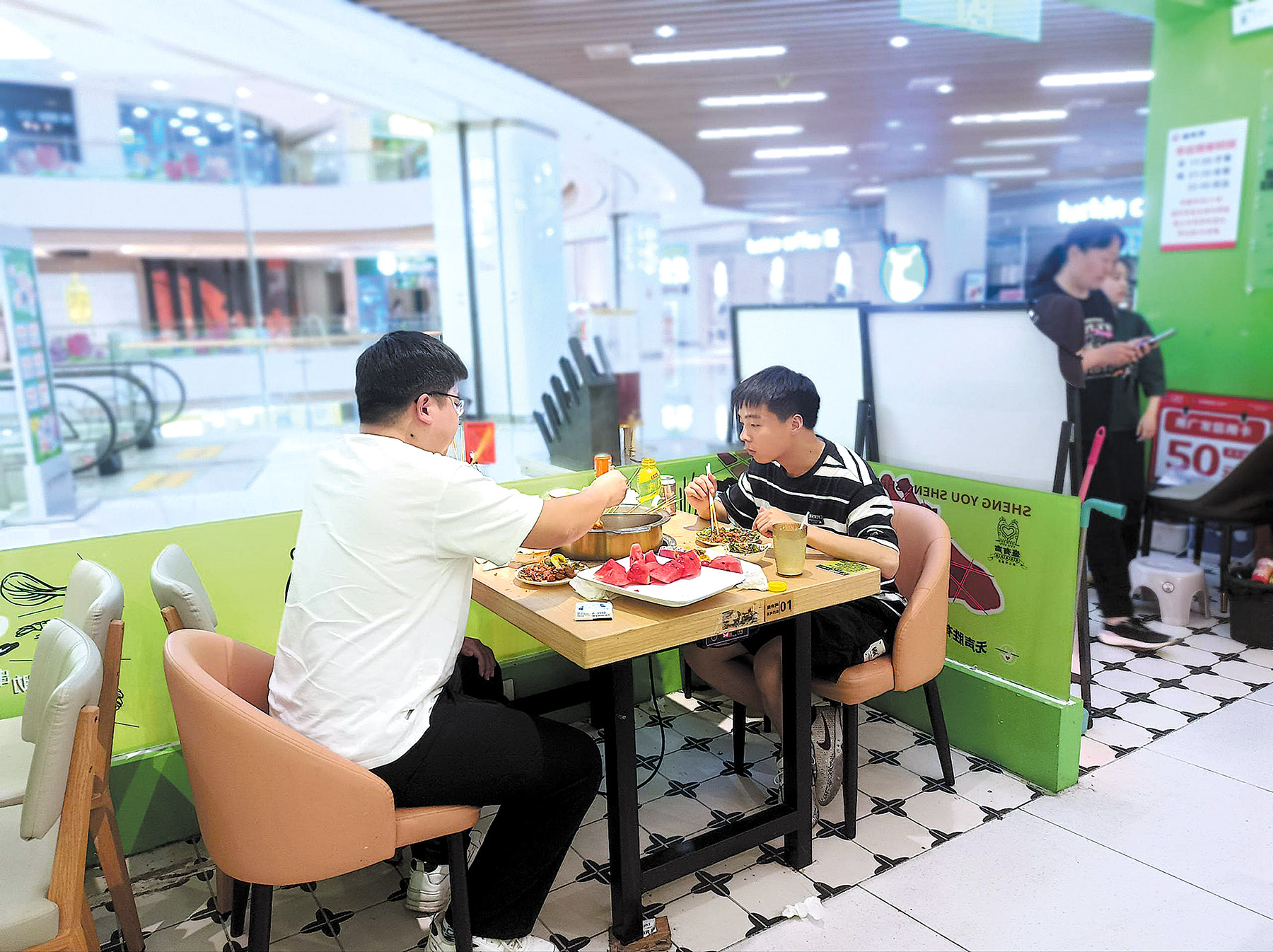Hotpot chain one of many outlets increasingly employing those with hearing impairments, Wang Qian and Shi Baoyin report in Zhengzhou.

From prep cook to kitchen manager, 31-year-old Deng Wei has a long-term goal for a career that one day will help him support his family. Feeling confident and optimistic, the hearing-impaired man earns a monthly income of around 4,000 yuan ($550.1), and enjoys the quiet environment at work where about half of the 10 staff have similar impairments.
Deng works in Zhengzhou, Henan province, at a branch of a self-service hotpot chain called Shengyousheng that opened in the city last year. The name, which combines sheng (more) with yousheng (sound), reflects its founder's philosophy: communication is about more than just speech.
Shengyousheng's self-service model minimizes communication, allowing people like Deng to excel. "Our service model creates favorable working conditions for hearing-impaired individuals and helps them integrate without feeling different," 31-year-old branch owner Li Duo says.
"To me, all the staff are the same — people relying on themselves to make a living," he says.
READ MORE: All you knead is love
The restaurant makes the most of the self-service dining experience with customers choosing skewers from open refrigerators and mixing their own dipping sauces, minimizing situations that require complex communication.
It incorporates many considerate design elements to improve the communication experience between customers and hearing-impaired employees. Large posters clearly display commonly used gestures, such as the ones for "food "and "thank you", accompanied by simple text annotations. Every table also has prompt cards to help customers communicate.
"We must be patient and give them time. I think they can improve at their jobs. This is not only my belief, but also the philosophy that supports the continued progress of the restaurant," Li says.
The chain began in Shenyang, Liaoning province, about four years ago when the group's founder, Wang Chuang, first envisioned a space where hearing-impaired people could thrive.

Upon hearing about it, Li knew that providing jobs to people with special needs, who were able to make a living for themselves, was exactly what he wanted to do.
To publicize the restaurant, Li opened an account on short-video platform Douyin to document daily operations, which gained 484,000 followers and about 1.7 million likes. According to Wang, his chain has hired more than 200 people with hearing impairments over the past four years.
Stepping into the limelight hasn't only increased the number of clients, but also the comments about whether Wang and Li are doing a good thing or simply taking advantage of the hearing-impaired.
Wang remembers two female diners asking him why he hired waiters who couldn't provide quality service. He was offended, but had to smile and apologize to them.
This is not an uncommon situation. Li remembers an incident when a customer wanted cilantro and, unaware that the staff were hearing impaired, asked a nearby server where he could get some.
When the waiter didn't respond, the customer got angry over his "poor" attitude and complained to Li. He calmed the customer and patiently explained the situation until he understood.
Li feels that the hearing-impaired staff sometimes view the restaurant as home, rather than just a workplace. For example, Deng once noticed that a customer had left a large amount of wasted food on the table and approached them and urged them to finish the food through gestures. Upon seeing this, Li quickly explained the situation to the customer, avoiding potential conflict.
Deng has reason to cherish his job, and not just because it gives him confidence and respect. His last job was at an electronics factory where people were unfriendly and made fun of him.

For Bai Liping, a 28-year-old hearing-impaired waitress from Zhoukou, Henan, the job has been transformative. After working there for six months, she now handles front-of-house duties with a sentence printed on the back of her work shirt reading: "Tap me on the shoulder for help."
"Before, I worked in factories where communication was rare, and my experience working at a milk tea shop was not good because customers would get impatient when I couldn't hear what they wanted," she texts on her phone. "Here, if customers need something, we text or write notes. When they say 'thank you', it feels great."
Customers like 23-year-old Tian Huaquan barely notice the difference. "It's just a normal restaurant with great food," he says. "If we need extra broth or less spice, we type it out. Honestly, it's fun — like passing notes in class."
Li isn't content with staying in Zhengzhou. With a growing following on social media, he plans to open restaurants in Luoyang and Kaifeng, two other cities in Henan, where he plans to replicate the model.
ALSO READ: Hearing-impaired teen's journey to university success
China has an estimated 70 million people with moderate to complete hearing loss, which accounts for 5.17 percent of the population, according to data about hearing impairment issues. Authorities, nongovernmental organizations, enterprises and individuals like Li have worked to improve inclusion for those with hearing loss.
There have been reports of bakeries, cafeterias and restaurants hiring the hearing-impaired, and thanks to the internet, they have more career options, like becoming livestreamers and working in deliveries.
"Hearing-impaired employees don't need charity — they're talented workers," Li says. "This isn't just about business, it's about changing mindsets."
Qi Xin contributed to this story.
Contact the writers at wangqian@chinadaily.com.cn


